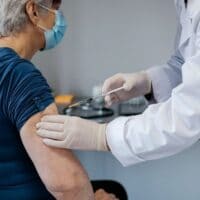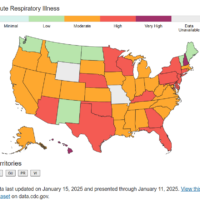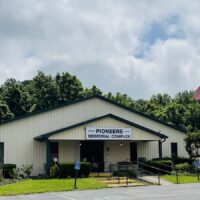Gov. Andy Beshear on Friday extended the state’s face mask mandate for another 30 days. This is the second time the governor has renewed the mandate for an additional month in an effort to curb the spread of the novel coronavirus.
Health professionals urge the use of masks because they reduce the spread of droplets that are expelled when a person breathes, coughs and sneezes. The virus is carried in droplets, even in people who do not have symptoms of COVID-19 and don’t know they could be infecting others around them.
“We are not defenseless against COVID-19,” Dr. Robert R. Redfield, director of the Centers for Disease Control and Prevention, said in a press release that referenced a July 14 opinion article he co-wrote for the Journal of the American Medical Association. “Cloth face coverings are one of the most powerful weapons we have to slow and stop the spread of the virus — particularly when used universally within a community setting. All Americans have a responsibility to protect themselves, their families, and their communities.”
In the JAMA article, Redfield and his colleagues framed the use of facial masks as “a civic duty, a small sacrifice reliant on a highly effective low-tech solution” in the global fight against COVID-19.
“When asked to wear face coverings, many people think in terms of personal protection. But face coverings are also widely and routinely used as source control. For instance, if given the choice between having surgery performed by a team not wearing some covering over their mouths and noses vs a team that does, almost all patients would reject the former,” they wrote. “This option seems absurd because it is known that use of face coverings under these circumstances reduces the risk of surgical site infection caused by microbes generated during the surgical team’s conversations or breathing. Face coverings do the same in blocking transmission of (COVID-19).”
The CDC has highlighted recent studies that support the use of masks to prevent community spread of the virus.
In one study, two hairdressers in Missouri were infected with the coronavirus but there was no evidence they spread the virus to any clients during a period when both of them and all of their customers wore face coverings.
“The investigation focused on two hair stylists — infected with and having symptoms of COVID-19 — whose salon policy followed a local ordinance requiring cloth face coverings for all employees and patrons,” the CDC reported in a news release. “The investigators found that none of the stylists’ 139 clients or secondary contacts became ill, and all 67 clients who volunteered to be tested showed no sign of infection.”
The Kentucky mandate requires that masks be worn while indoors in public places such as stores, business offices, beauty salons and medical clinics, and outdoors in situations where social distancing is not possible.
Beshear’s executive order, states, in part:
“People in Kentucky must cover their nose and mouth with a face covering when they are in the following situations that represent a high risk of COVID-19 transmission:
“While inside, or waiting in a line to enter, any: retail establishment; grocery store; pharmacy; hair salon/barbershop; nail salon/spa; tattoo parlor; child care facility; restaurant or bar (when not seated and consuming food or beverage); health care setting, or; any other indoor public space in which it is difficult to maintain a physical distance of at least six fee from all individuals who are not members of that’s person’s household;
“While waiting for or riding on public transportation or paratransit, or while riding in a taxi, private car service, or ride-sharing vehicle, or driving any of the above while customers are present; or
“While in outdoor public spaces in which the person cannot maintain a physical distance of six feet from all individuals who are not members of the person’s household and is not otherwise covered by previously issued guidance.”
The renewed order begins Monday.
Jennifer P. Brown is co-founder, publisher and editor of Hoptown Chronicle. You can reach her at editor@hoptownchronicle.org. Brown was a reporter and editor at the Kentucky New Era, where she worked for 30 years. She is a co-chair of the national advisory board to the Institute for Rural Journalism and Community Issues, governing board past president for the Kentucky Historical Society, and co-founder of the Kentucky Open Government Coalition. She serves on the Hopkinsville History Foundation's board.





